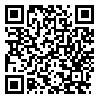Volume 14, Issue 9 (December 2016)
Nursing and Midwifery Journal 2016, 14(9): 767-774 |
Back to browse issues page
Download citation:
BibTeX | RIS | EndNote | Medlars | ProCite | Reference Manager | RefWorks
Send citation to:



BibTeX | RIS | EndNote | Medlars | ProCite | Reference Manager | RefWorks
Send citation to:
moazaz R, narimani M, hajloo N, abolghasemi A, savadi osjoei D. THE EFFECT OF COGNITIVE-BEHAVIORAL STRESS MANAGEMENT IN THE FREQUENCY OF EPILEPTIC SEIZURES IN ADOLESCENTS WITH EPILEPSY. Nursing and Midwifery Journal 2016; 14 (9) :767-774
URL: http://unmf.umsu.ac.ir/article-1-2947-en.html
URL: http://unmf.umsu.ac.ir/article-1-2947-en.html
1- University of Mohagheghe Ardabili, Ardabil, Iran
2- University of Mohagheghe Ardabili, Ardabil, Iran (Corresponding Author) ,narimani@uma.ac.ir
3- University of Guilan, Rasht, Iran
4- Tabriz University of Medical Sciences , Tabriz, Iran
2- University of Mohagheghe Ardabili, Ardabil, Iran (Corresponding Author) ,
3- University of Guilan, Rasht, Iran
4- Tabriz University of Medical Sciences , Tabriz, Iran
Abstract: (6885 Views)
Background & Aims: Emotional problems are common and annoying for patients affected by epilepsy. Despite the increasing attention of medical science, the neurological aspects of epilepsy and its psychological effects are remained almost unknown.This study aimed to evaluate the impact of cognitive-behavioral stress management on reducing the frequency of seizures in dealing with the type of epilepsy in adolescents with epilepsy.
Materials & Methods: In this pilot study, 40 patients with epilepsy (20 patients with general epilepsy, and 20 patients with focal epilepsy) were selected by convenience sampling from Tabriz Epilepsy Society, and then they were randomly divided into two groups: Control and Experimental.The rage of their age was 14 to 21 years old. To obtain the data, the frequency of seizures of the patients was collected two months before the intervention). The frequency of attacks was about 3 to 6 times). Before the start of the first session, Lvynda questionnaire was delivered to measure stress, depression and anxiety of the patients. The experimental group )10 patients with General epilepsy, 10 patients with Focal epilepsy) was intervened by cognitive-behavioral stress management intervention for two months. Data analysis was performed using the spss 21software.
Results: The results showed that Cognitive-behavioral stress management intervention in patients with epilepsy resulted in the reducing of the frequency of seizures. There was no significant difference between general and focal epileptic patients. Based on the results of the study, there was a significant relationship between emotional distress and the frequency of seizures.
Conclusion: Psychological interventions to reduce the frequency of the seizures can be an effective factor. So in addition to medicine therapy, this method can be used to improve the condition of in the epileptic patients.
Type of Study: Research |
Subject:
Psychiatry & Psychology
Send email to the article author
| Rights and permissions | |
 |
This work is licensed under a Creative Commons Attribution-NonCommercial 4.0 International License. |





 gmail.com, unmf
gmail.com, unmf